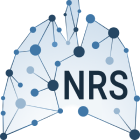NRS SAB Best Paper Award
The call for applications for the NRS-SAB Best Paper Award 2024 is open! The "NRS-SAB Best Paper Award," is presented annually to a young researcher who has conducted their research at a Research Institute or (Academic) hospital in the Netherlands, or a Dutch researcher who has conducted their research abroad. Young Researcher is defined as: under 40 years old on December 31, 2023. The 2024 competition pertains to publications from 2023. Manuscripts must have a publication date in 2023. Online pre-publications with a publication date in 2024 are not eligible.
Application guidelines
Deadline submission: 11 October 2024
NRS SAB Best Paper Award 2024-Tamar Tak
Congratulations Tamar Tak for winning the NRS SAB Best Paper Award for his paper titled: Inflammatory and tolerogenic myeloid cells
determine outcome following human allergen challenge. "This article describes patient-related, translational research involving patients with allergic rhinitis and healthy controls who underwent nasal allergen provocation. It investigates the role of monocytes and dendritic cells using state-of-the-art methods (Site-Seq and single-cell sequencing) and demonstrates the significant role of subsets of these cell populations in allergic inflammation in the nose. The study design is robust, the findings are original and innovative, and the combined analyses of the cell populations provide valuable insights. The results, now supported by a much more comprehensive study, highlight the role of monocytes, macrophages, and dendritic cells in allergic inflammation within local tissues. The study was published in a leading journal, and the winner played a key role in sample analyses, statistical evaluations, and the interpretation and publication of the work."
Read more

NRS SAB Best Paper Award 2023-Xinhui Wu
Congratulations Xinhui Wu for winning the NRS SAB Best Paper Award for her paper titled: A transcriptomics-guided drug target discovery strategy identifies receptor ligands for lung regeneration. published March 23, 2022 in Science Advances.
"In this paper, we provided new insights of the molecular mechanisms on COPD with the assistance of multiple omics analysis. Specifically, by generating transcriptomics signatures of lung epithelial progenitors derived from mice exposed to cigarette smoke (CS), we uncovered dynamic molecular signalling pathways such as the circadian clock rhythm signalling pathway which was poorly studied in the field of lung repair. This expands the current knowledge of understanding COPD as well as provides a foundation on novel drug development. In addition, we examined our potential drug targets using multiple COPD models including a CS-induced 3D lung organoid assay, which not only allows us to examine the regenerative capabilities of our drug targets in lung stem/progenitor cells but also to understand the interactions between the stem niche cells in different conditions."
Read more

Call for applications 2023
Application deadline: October 15, 2023
NRS SAB Best Paper Award 2022-Esmee van der Ploeg
Title: Steroid-resistant human inflammatory ILC2s are marked by CD45RO and elevated in type 2 respiratory diseases.
van der Ploeg EK, Golebski K, van Nimwegen M, Fergusson JR, Heesters BA, Martinez-Gonzalez I, Kradolfer CMA, van Tol S, Scicluna BP, de Bruijn MJW, de Boer GM, Tramper-Stranders GA, Braunstahl GJ, van IJcken WFJ, Nagtegaal AP, van Drunen CM, Fokkens WJ, Huylebroeck D, Spits H, Hendriks RW, Stadhouders R, Bal SM. Sci Immunol. 2021 Jan 29;6(55):eabd3489.




